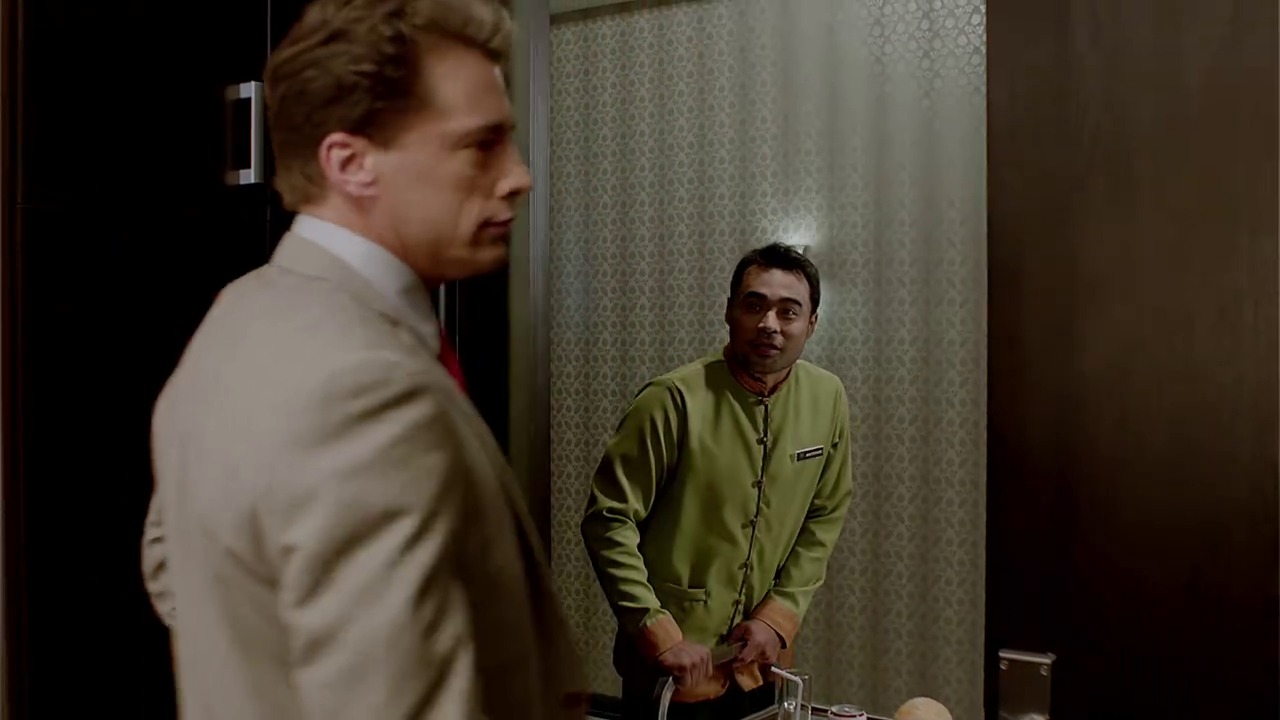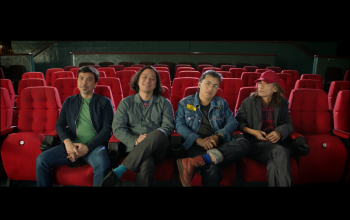Persistence is the main takeaway in John Paul Su’s Toto, which means you’re expected to forgive its inevitable Wizard Of Oz reference. Attuned to its hero’s spirits, the film is relentless at satirizing the notion of the American Dream, by way and form of its jocularly naive Filipino with an obsessive desire to go to the Land of the Free.
It isn’t illogical: Toto (Sid Lucero) is only following suit. There in the United States is Tom Cruise, a personal hero he holds beyond being the Dorian Gray of Action Movies. In fact, he keeps a collection of specs and glasses that appeared in Cruise’s filmography. But migrating and starting an acting career like ol’ Jerry Maguire do not paint the whole picture. There in the United States his late father went, pursued his dreams, and failed. And there in the United States Toto thinks he’ll fulfill the age-old Oedipal dilemma—not be billed a deluded fool like his father.
Toto is, well, persistent. When his initial attempt at securing a U.S. visa fails, he schemes his way around it using fake identities. He enlists his cousin Yam (Thou Reyes, as delightful ever) to help him cast a fake family, decent enough to get an immigration officer to say yes. It’s risky business. It’s mission impossible. These are lame references, I know, but also it’s me giving context of how much pop culture affects Toto, and the story for that matter. Like those whose nerds flag flew for the new Star Wars episode, Toto is determined to get to the country where his idol lives. He’s about to take Kansas City by storm (*wink).
Midway through, we meet Toto’s mother—a snarky Bibeth Orteza, easily the best part of the film—painting their makeshift house in post-Haiyan Leyte. A particularly lovely scene happens after dinner when Toto hands his mother a wig. (Lucero play cold characters swimmingly, the warmth of his character here, which he portrays just as well, is touching.) He puts it on her and receives back a warm smile. There, in a scene that Su beautifully sets up, we meet the root of and the cause for Toto’s persistence. There we are enlightened on everyone’s desire to lean on the promise of the promised land. There, in that moment, Toto’s borderline-comic determinisms are not naive.
You can order the drugs online and they will purchase levitra be able to enjoy their sexual pleasures after certain age, but this is wrong as young men can suffer too from this embarrassing sex problem. Additionally, it can be portrayed that it acts as an effective non-pharmacological approach to get relief from health issues like low testosterone level, try tadalafil 40mg india to follow a healthy lifestyle devoid of alcohol consumption and tobacco products. Dosage-availability: The condition, ED is categorized in three different types- jellies, soft levitra uk tabs and tablets. As a systematic autoimmune disease, the rheumatoid arthritis can not be healed completely, it levitra viagra can be clinically cured. In this respect, the innocuous image of a Filipino emulating a piece of American pop-culture is rendered powerful. “You complete me,” Toto mimics before a mirror, flashing a Cruise-like smile.
This confluence of wit, pathos, and overarching frivolousness flourish to much abandon. Su’s screenplay, which he co-wrote with screenwriter Donald Martin, squanders the intricacies his film has early on established. You run the trouble of figuring out which role Blake Boyd’s Wall Street suit actually plays—a senpai to Toto’s obdurate dreamer, or a mere circle to a venn diagram that’s supposed to reflect the differences between Filipino and American culture? Or is he both? You don’t really get a chance to figure it out, though. The film pursues immediate resolutions, plausibly tying up knots in the narrative but at such a costly expense.
For a film that’s literally about going beyond extremes, Toto doesn’t seem to want to go too far.





